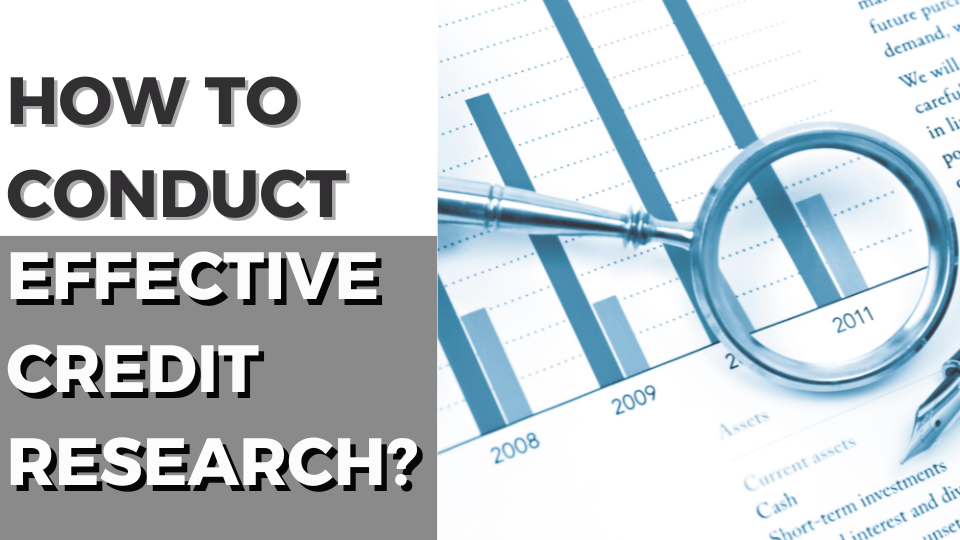Credit research is an essential aspect of financial management for both businesses and individuals. Effective credit research can mitigate risks, optimize lending decisions, and enhance financial stability. Here, we explore the top five credit research tactics to help you make informed financial decisions.
1. Leverage/Understanding Credit Reports
Understanding that having an experienced credit analyst review a credit report is critical for identifying what constitutes a risk and what does not. Equally important is having that analyst delve deeply into the data within the credit report, especially when dealing with small and medium-sized companies where there is information beyond a simple credit rating. The cornerstone of credit research is the credit report, which offers detailed insights into an individual’s credit history. Regularly reviewing these reports helps identify credit behavior patterns, detect potential red flags, and assess overall creditworthiness. Key elements to review include credit scores, payment history, credit utilization, and any derogatory marks. By working directly with RHK’s team of credit analysts, you can receive detailed insights into those to whom you will be extending credit, ensuring you make well-informed decisions.
2. Analyze Financial Statements
In-depth analysis of financial statements is crucial for evaluating a business’s credit health. Essential documents include balance sheets, income statements, and cash flow statements. These financials provide a clear picture of a company’s liquidity, profitability, and long-term financial stability. Trends over multiple periods reveal insights into operational efficiency and fiscal responsibility. Focus on metrics such as the current ratio, debt-to-equity ratio, and interest coverage ratio.
3. Industry Benchmarking
Comparing a company’s financial performance against industry benchmarks provides context to its credit risk profile. This involves examining industry-specific metrics and ratios to understand how a company measures up against its peers. Benchmarking reveals whether financial performance results from internal strengths and weaknesses or broader industry trends. This tactic sets realistic expectations and informs credit decisions.
4. Conduct Qualitative Analysis
Quantitative data is vital, but qualitative factors also significantly impact creditworthiness. This includes assessing the expertise of the management team, the company’s market position, competitive advantages, and overall business strategy. For individuals, factors such as employment stability and personal references offer additional layers of insight. Qualitative analysis provides a holistic view of the potential risks and opportunities associated with lending or extending credit.
5. Utilize Advanced Analytics and AI
Incorporating advanced analytics and artificial intelligence (AI) into credit research greatly enhances accuracy and efficiency. AI algorithms analyze large datasets to identify patterns and predict future credit behavior. Machine learning models offer real-time credit scoring, fraud detection, and dynamic risk assessments. Leveraging these technologies leads to precise and proactive credit management.
How RHK Recovery Group Can Help
RHK Recovery Group, with its extensive experience as a debt collection agency, excels in providing quick and accurate credit research. Our team of skilled financial experts employs these top tactics to offer comprehensive credit assessments. We use advanced analytics and maintain robust industry benchmarks to ensure thorough and reliable credit research. Partnering with RHK Recovery Group gives you access to expert insights and tools that streamline your credit evaluation process, enabling informed and confident financial decisions.
For businesses looking to optimize their credit strategies or individuals seeking a better understanding of their credit profile, RHK Recovery Group is ready to deliver excellence in credit research and debt recovery. Reach out to us today to learn more about how we can support your financial goals.







